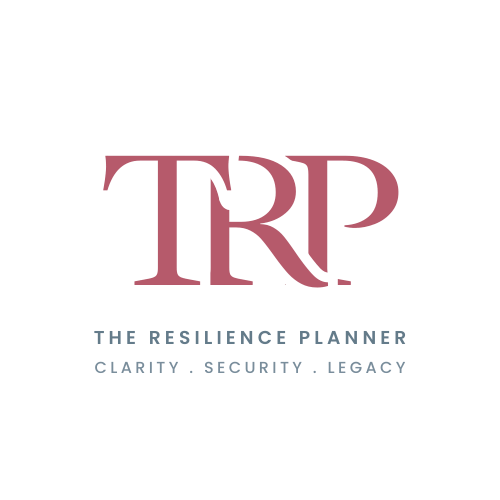Top Questions to Ask Before Buying Insurance
Insurance plays a crucial role in financial security, providing protection against unexpected risks and ensuring peace of mind for you and your loved ones. However, with the wide variety of insurance products available, selecting the right policies can feel overwhelming. Many people end up purchasing coverage without fully understanding what they are getting—or worse, realizing too late that their policies don’t meet their needs.
This article provides a checklist of some key questions to ask before purchasing an insurance policy, along with explanations to help you make informed choices.
General Insurance Questions
1. What financial risks am I trying to cover with insurance?
-> Why it matters: Different insurance policies serve different purposes—some provide financial protection against death, disability, critical illness, hospitalisation, or accidents, while others focus on savings or investment growth. Before committing to a policy, define your primary objective: Do you need income replacement? Medical coverage? Long-term wealth accumulation?
2. What types of insurance do I actually need?
-> Why it matters: Not everyone needs every type of insurance. Essential coverage typically includes health, life, and disability insurance, but depending on your situation, you might also need critical illness coverage, personal accident insurance, or long-term care insurance. Assess your financial situation, lifestyle, and dependents before purchasing multiple policies.
3. What is my budget for insurance premiums?
-> Why it matters: While insurance is important, overcommitting to high premiums can strain your finances. A good rule of thumb is to allocate no more than 10-15% of your monthly income to insurance premiums while ensuring you still have enough for savings and investments.
4. Should I prioritise protection or savings when choosing a policy?
-> Why it matters: Some insurance policies focus purely on protection (e.g., term life, hospital plans), while others combine insurance with investment or savings (e.g., whole life, investment-linked policies). If your main goal is financial security, prioritize protection-first policies before considering savings-based plans.
Life Insurance Questions
5. How much life insurance coverage do I need based on my income, expenses, and dependents?
-> Why it matters: A common guideline is to have 10-15 times your annual income in life insurance coverage, but individual needs may vary. Consider outstanding debts, mortgage, children’s education costs, and living expenses for dependents when calculating coverage.
6. What is the difference between term life and whole life insurance?
-> Why it matters: Term life insurance provides coverage for a fixed period (e.g., 10, 20, or 30 years) and is more affordable. Whole life insurance offers lifetime coverage with a savings component but comes with higher premiums. Choose term life if affordability and flexibility matter more, and whole life if you want permanent coverage with cash value accumulation.
Health & Critical Illness Insurance Questions
7. What are the main exclusions in this health insurance policy?
-> Why it matters: Every policy has exclusions. Common exclusions include pre-existing conditions, cosmetic surgeries, self-inflicted injuries, and alternative treatments. Knowing what isn’t covered prevents surprises during claims.
8. How does this policy coordinate with my employer’s (or group) health coverage?
-> Why it matters: If you have employer-provided or group health insurance, check if it’s sufficient or if you need additional personal coverage. Look for gaps such as hospitalisation limits, exclusions, or lack of coverage after retirement.
Disability & Income Protection Insurance Questions
9. If I become unable to work due to an illness or injury, how much will the policy pay me?
-> Why it matters: Disability income insurance replaces lost income when you can’t work due to illness or injury. Some policies cover a percentage of your salary (e.g., 50-75%), while others provide a fixed payout.
Investment-Linked & Savings-Based Insurance Questions
10. How do the investment-linked returns compare to standalone investment options?
-> Why it matters: Investment-linked policies (ILPs) combine insurance with market investments, but fees can be high. Compare returns with other standalone investments like unit trust funds or exchange-traded funds (ETFs).
11. Are there hidden charges or surrender penalties if I cancel this policy?
-> Why it matters: Some policies have high administrative charges or penalties for early surrender. Ask for a full breakdown of fees before signing.
12. How long do I need to commit to this policy before I see meaningful returns?
-> Why it matters: If you’re buying an endowment or ILP, check how long it takes before the policy becomes profitable. Some plans can take 10-15 years to break even.
Final Thoughts on Choosing the Right Insurance
Buying insurance is a significant financial decision, and asking the right questions can help you avoid costly mistakes. The next time you are faced with making an insurance purchase decision, consider and ensure you have:
☑️ Assessed your financial needs and goals
☑️ Compared with various available options
☑️ Understood all policy terms, exclusions, and premiums
☑️ Verified if your employer coverage is sufficient, and you are sure you don’t need personal coverage
☑️ Chosen protection-first policies before investment-based options
If you’ve found this useful, you may also be interested in the checklists for insurance budgeting, insurance claims and insurance review. Get the full guide here:
Disclaimer:
The views and opinions expressed in this article are those of the author, and do not reflect the official position of any agency, organization, employer, or company. This content is for general knowledge only and does not constitute financial advice. Please consult a licensed financial advisor for personalised recommendations.
About the author:
Cammie currently holds a financial advisory license for distribution of insurance and collective investments scheme products. She also has an Estate Succession Practitioner certification. Trained as an Architect and being a brain tumour survivor, she identifies herself as The Resilience Planner in Personal Finance. Her approach to financial advisory is consultative. She encourages her clients to be participative and ask her questions. She believes that because Personal Finance is personal, she works with her clients to cater for tailored solutions to suit each individual’s needs and goals in life.







